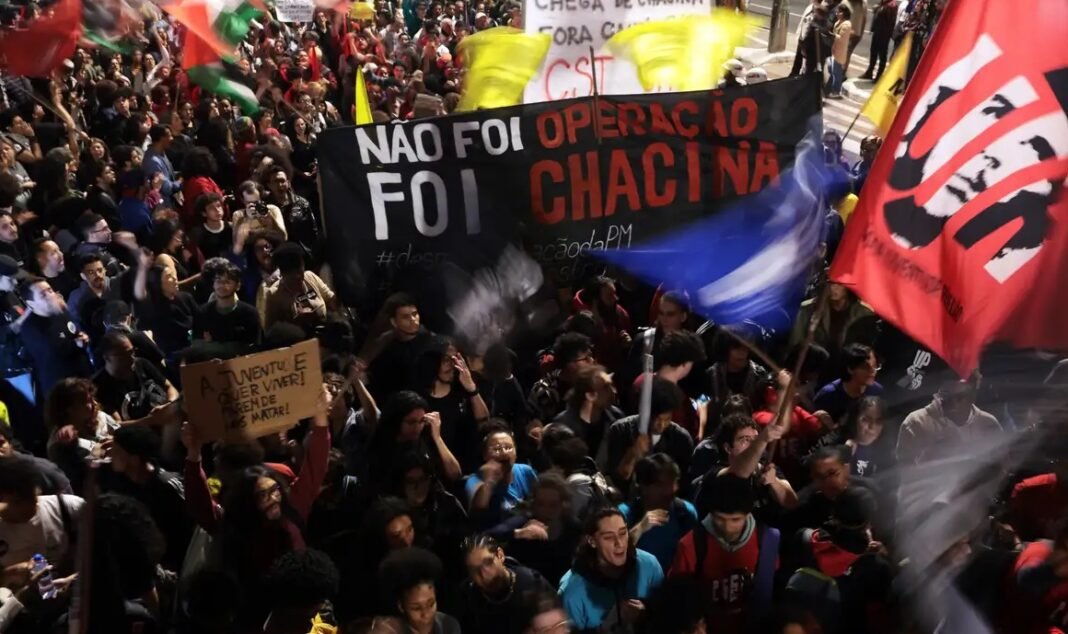The police megaoperation carried out earlier that week in Rio de Janeiro’s Penha and Alemão complexes, which left 121 people dead including four police officers, sparked nationwide outrage. The action, described by Governor Cláudio Castro as a “success,” targeted leaders of the Red Command (Comando Vermelho) and quickly became the deadliest in Rio’s history. Civil society groups and human rights organizations denounced the scale of violence and called for accountability.
This Content Is Only For Subscribers
To unlock this content, subscribe to INTERLIRA Reports.
Protest in Rio de Janeiro
In Rio de Janeiro, residents of the Penha and Alemão communities took to the streets on Friday afternoon to protest the killings. Demonstrators gathered in Vila Cruzeiro around 15:00., demanding justice for victims and condemning the excessive use of force. The protest remained largely peaceful and ended by 18:00., with some participants organizing a motorcycle rally along Avenida Brasil before returning to their neighborhoods.
Protest in São Paulo
Later that evening, a parallel demonstration was held on Avenida Paulista in São Paulo, in front of the Museum of Art of São Paulo (MASP). The rally, titled “General Call Against Death,” was organized by more than 120 Black and human rights groups, who demanded the arrest of Governor Castro and Rio’s military police command. By 20:00, protesters occupied two lanes of the avenue, chanting slogans and carrying banners, while São Paulo’s Military Police monitored the march without incident.
Analysis:
Despite the October 31 protests in Rio de Janeiro and São Paulo, the megaoperation has a large local support. The two demonstrations and the record results of deaths in this operation will not be enough to change public opinion. The urge for a final solution for the gangs’ criminal rule of large city areas helps support the cycle of violence perpetrated by drug traffickers’ wars and police actions. It is unlike that a cycle of unrest in Brazil’s major cities will be seen for the moment.
On the other hand, such actions only make it more difficult for the government to be able to fill the vacuum of state power in such communities, replacing the informal rule of gangs, due to increased distrust.
In São Paulo, the rally on Avenida Paulista—organized by over 120 Black and human rights groups—expanded the issue from a local security crisis to a national political dispute. Still, mobilization against the operation should largely remain among leftist groups and human rights organizations.
Not even the Federal Government positioned itself fully against the action. When it comes to discourse, the central authorities decided to be more practical and offer resources, help, and quick measures, noticing the large support for the action and thus attempting to capitalize on it.
Sources: Terra; Agência Brasil.




